Fleurs du Mal Magazine


![]()
Wetenschap
Ik stuur een lantaarnpaal de stroomrekening
swaffel tegen schrikdraad
en zet zangvogels vast wegens spionage
in meesmuilend doorluchtige taal vertel ik u
dat u een fout hebt gemaakt
en dat dat licht aan het eind van de tunnel
slechts resultaat is van het sterven van een cel
graag schroef ik voor uw ogen
het wonder uit elkaar
tot er wetenschap overblijft
daarna kweek ik een hamburger uit uw gestorven vlees
-met ui en een flinke klodder saus op een broodje van de hema-
aan mijn eeltkamertafel zal ik u met smaak eten.
Martin Beversluis
fleursdumal.nl magazine
More in: Archive A-B, Beversluis, Martin
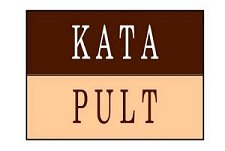
Ton van Reen: Katapult, de ondergang van Amsterdam (04)
Muizenissen
Bas, de kroegbaas van De Engelbewaarder, een net café aan de Kloveniersburgwal, maakte zich ernstige zorgen. De muizen die in zijn zaak huisden, bezorgden hem de laatste tijd heel wat last. Sommige brutaaltjes moest hij scherp in de gaten houden. Hij had met het muizencollectief afgesproken dat ze in zijn zaak mochten huizen, mits ze niet meer beschadigden dan per se voor hun leefwijze nodig was. Toch waren er exemplaren die keer op keer weer aan de kast van de pianola zaten te knabbelen, of hun tandjes scherpten aan de stoelpoten. Rakkers die naar niemand wilden luisteren. Hoe Bas zijn hersens ook pijnigde, hij kon geen afdoende middel verzinnen om de muizen hun schandelijke vernielzucht af te leren. Met lede ogen moest hij aanzien hoe ze de inrichting van zijn zaak langzaam maar zeker naar de knoppen hielpen. En dat was blijkbaar nog niet genoeg, want nog net zag Bas hoe Kaspar, de dikke zwarte muizenkoning, een stuk worst uit de broodjeskast pikte en met de buit in zijn bek op de bar sprong.
Kaspar vrat zijn pens vol en boerde. Hij was tevreden. De worst smaakte hem goed. Hij ging op zijn hurken zitten, zijn rug tegen de koele wand van de bierpomp, streelde vergenoegd zijn dikke buik en keek het café rond. Uit de hoogte. Een koning die vanaf zijn balkon neerkeek op zijn minderen. Die macht kon Kaspar zich veroorloven. Tenslotte was hij de stamvader van de wel meer dan honderd zwarte muizen die de holen en kieren in alle vertrekken van De Engelbewaarder bevolkten. De heersende kliek, want de witte muizen waren hier nog maar pas gearriveerd en ze waren nog met weinig.
De muizen leefden met het gebeuren in het café mee. Per slot van rekening was het café, van voor- tot achterdeur, hun wereld. Van wat zich allemaal nog achter de deuren afspeelde, hadden ze geen flauw idee. Met het leven op straat bemoeiden ze zich liever niet. Enkelen onder hen waagden zich wel eens overmoedig naar buiten. Dat waren zij die het helemaal niet meer aardig vonden met zovelen op zo’n kleine plek te leven. En ook de minst gewaardeerden of de meest geplaagden van de groep wilden er wel eens vandoor. Die hoopten daarbuiten een zachter leven aan te treffen, maar ze kwamen meestal geschrokken terug. Voor hen lag er achter die deuren een wereld vol venijn, waar ze met hun muizenstreken geen vat op kregen. Kwam je als muis binnen het bereik van ratten of katten, of van kolonies andere muizen, dan was je graag terug in De Engelbewaarder. Dan nam je het maar voor lief dat je soortgenoten je voor de gek hielden omdat je huid voor een zwarte muis wat grijs was gebleven. Of je bleef gelaten de verschoppeling omdat je wat kleintjes was uitgevallen.
wordt vervolgd
Ton van Reen: Katapult (04)
fleursdumal.nl magazine
More in: - Katapult, de ondergang van Amsterdam, Reen, Ton van

Antoine de Kom wint VSB Poëzieprijs 2014
Antoine de Kom is de winnaar van de VSB Poëzieprijs 2014. De dichter krijgt de prijs voor de beste Nederlandstalige dichtbundel van het afgelopen jaar voor zijn bundel ‘Ritmisch zonder string’.
De Kom ontving op 29 januari tijdens een feestelijke avond in het Stadhuis van Rotterdam de prijs uit handen van burgemeester en juryvoorzitter Ahmed Aboutaleb. Aan de prijs is een geldbedrag van 25.000 euro verbonden en een glaskunstwerk van kunstenares Maria Roosen. Naast De Kom maakten ook de dichters Maria Barnas, F. van Dixhoorn, Micha Hamel en Miriam Vanhee kans op de prijs.
De jury was unaniem in het aanwijzen van Antoine de Kom als winnaar. “Door een zintuiglijke en krachtige beeldtaal, vermengd met slang en folklore, worden in ‘Ritmisch zonder string’ vele werelden welhaast tastbaar.” Lovend spreekt de jury over De Koms diep verankerde engagement waarin gelukkig ook plaats is voor spot waar het de rol van de dichter betreft.
De jury bestaande uit Saskia de Jong, Hilde Keteleer, Joep Leerssen, Jan Rock en Ahmed Aboutaleb, nomineerden in november vijf van de in totaal 115 bundels die allen tussen 1 september 2012 en 31 augustus 2013 verschenen.
Antoine de Kom,
Ritmisch zonder string
Uitgeverij Querido
ISBN 9789021447339
fleursdumal.nl magazine
More in: Archive K-L, Art & Literature News, Literary Events
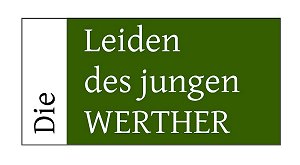
The Sorrows of Young Werther (06)
by J.W. von Goethe
17 May 1771
I have made all sorts of acquaintances, but have as yet found no society. I know not what attraction I possess for the people, so many of them like me, and attach themselves to me; and then I feel sorry when the road we pursue together goes only a short distance. If you inquire what the people are like here, I must answer, “The same as everywhere.” The human race is but a monotonous affair. Most of them labour the greater part of their time for mere subsistence; and the scanty portion of freedom which remains to them so troubles them that they use every exertion to get rid of it. Oh, the destiny of man!
But they are a right good sort of people. If I occasionally forget myself, and take part in the innocent pleasures which are not yet forbidden to the peasantry, and enjoy myself, for instance, with genuine freedom and sincerity, round a well-covered table, or arrange an excursion or a dance opportunely, and so forth, all this produces a good effect upon my disposition; only I must forget that there lie dormant within me so many other qualities which moulder uselessly, and which I am obliged to keep carefully concealed. Ah! this thought affects my spirits fearfully. And yet to be misunderstood is the fate of the like of us.
Alas, that the friend of my youth is gone! Alas, that I ever knew her! Imight say to myself, “You are a dreamer to seek what is not to be found here below.” But she has been mine. I have possessed that heart, that noble soul, in whose presence I seemed to be more than I really was, because I was all that I could be. Good heavens! did then a single power of my soul remain unexercised? In her presence could I not display, to its full extent, that mysterious feeling with which my heart embraces nature? Was not our intercourse a perpetual web of the finest emotions, of the keenest wit, the varieties of which, even in their very eccentricity, bore the stamp of genius? Alas! the few years by which she was my senior brought her to the grave before me. Never can I forget her firm mind or her heavenly patience.
A few days ago I met a certain young V–, a frank, open fellow, with a most pleasing countenance. He has just left the university, does not deem himself overwise, but believes he knows more than other people. He has worked hard, as I can perceive from many circumstances, and, in short, possesses a large stock of information. When he heard that I am drawing a good deal, and that I know Greek (two wonderful things for this part of the country), he came to see me, and displayed his whole store of learning, from Batteaux to Wood, from De Piles to Winkelmann: he assured me he had read through the first part of Sultzer’s theory, and also possessed a manuscript of Heyne’s work on the study of the antique. I allowed it all to pass.
I have become acquainted, also, with a very worthy person, the district judge, a frank and open-hearted man. I am told it is a most delightful thing to see him in the midst of his children, of whom he has nine. His eldest daughter especially is highly spoken of. He has invited me to go and see him, and I intend to do so on the first opportunity. He lives at one of the royal hunting-lodges, which can be reached from here in an hour and a half by walking, and which he obtained leave to inhabit after the loss of his wife, as it is so painful to him to reside in town and at the court.
There have also come in my way a few other originals of a questionable sort, who are in all respects undesirable, and most intolerable in their demonstration of friendship. Good-bye. This letter will please you: it is quite historical.
The Sorrows of Young Werther (Die Leiden des jungen Werther) by J.W. von Goethe. Translated by R.D. Boylan.
To be continued
fleursdumal.nl magazine
More in: -Die Leiden des jungen Werther, Archive G-H, Goethe, Johann Wolfgang von
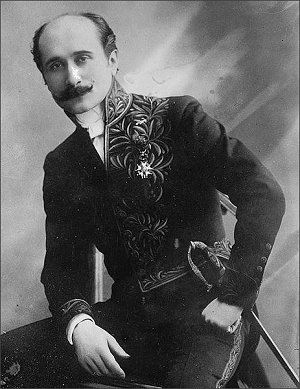
Edmond Rostand
(1868-1918)
Souvenir vague ou les parenthèses
Nous étions, ce soir-là, sous un chêne superbe
(Un chêne qui n’était peut-être qu’un tilleul)
Et j’avais, pour me mettre à vos genoux dans l’herbe,
Laissé mon rocking-chair se balancer tout seul.
Blonde comme on ne l’est que dans les magazines
Vous imprimiez au vôtre un rythme de canot ;
Un bouvreuil sifflotait dans les branches voisines
(Un bouvreuil qui n’était peut-être qu’un linot).
D’un orchestre lointain arrivait un andante
(Andante qui n’était peut-être qu’un flon-flon)
Et le grand geste vert d’une branche pendante
Semblait, dans l’air du soir, jouer du violon.
Tout le ciel n’était plus qu’une large chamarre,
Et l’on voyait au loin, dans l’or clair d’un étang
(D’un étang qui n’était peut-être qu’une mare)
Des reflets d’arbres bleus descendre en tremblotant.
Et tandis qu’un espoir ouvrait en moi des ailes
(Un espoir qui n’était peut-être qu’un désir),
Votre balancement m’éventait de dentelles
Que mes doigts au passage essayaient de saisir.
Votre chapeau de paille agitait sa guirlande
Et votre col, d’un point de Gênes merveilleux
(De Gênes qui n’était peut-être que d’Irlande),
Se soulevait parfois jusqu’à voiler vos yeux.
Noir comme un gros paté sur la marge d’un texte
Tomba sur votre robe un insecte, et la peur
(Une peur qui n’était peut-être qu’un prétexte)
Vous serra contre moi. – Cher insecte grimpeur !
L’ombre nous fit glisser aux chères confidences ;
Et dans votre grand oeil plus tendre et plus hagard
J’apercevais une âme aux profondes nuances
(Une âme qui n’était peut-être qu’un regard).
Edmond Rostand poetry
fleursdumal.nl magazine
More in: Archive Q-R, CLASSIC POETRY
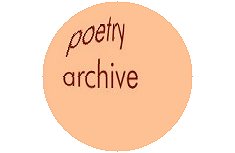
George Gordon (Lord) Byron
(1788-1824)
And Thou Art Dead, As Young And Fair
And thou art dead, as young and fair
As aught of mortal birth;
And form so soft, and charms so rare,
Too soon return’d to Earth!
Though Earth receiv’d them in her bed,
And o’er the spot the crowd may tread
In carelessness or mirth,
There is an eye which could not brook
A moment on that grave to look.
I will not ask where thou liest low,
Nor gaze upon the spot;
There flowers or weeds at will may grow,
So I behold them not:
It is enough for me to prove
That what I lov’d, and long must love,
Like common earth can rot;
To me there needs no stone to tell,
‘T is Nothing that I lov’d so well.
Yet did I love thee to the last
As fervently as thou,
Who didst not change through all the past,
And canst not alter now.
The love where Death has set his seal,
Nor age can chill, nor rival steal,
Nor falsehood disavow:
And, what were worse, thou canst not see
Or wrong, or change, or fault in me.
The better days of life were ours;
The worst can be but mine:
The sun that cheers, the storm that lowers,
Shall never more be thine.
The silence of that dreamless sleep
I envy now too much to weep;
Nor need I to repine
That all those charms have pass’d away,
I might have watch’d through long decay.
The flower in ripen’d bloom unmatch’d
Must fall the earliest prey;
Though by no hand untimely snatch’d,
The leaves must drop away:
And yet it were a greater grief
To watch it withering, leaf by leaf,
Than see it pluck’d to-day;
Since earthly eye but ill can bear
To trace the change to foul from fair.
I know not if I could have borne
To see thy beauties fade;
The night that follow’d such a morn
Had worn a deeper shade:
Thy day without a cloud hath pass’d,
And thou wert lovely to the last,
Extinguish’d, not decay’d;
As stars that shoot along the sky
Shine brightest as they fall from high.
As once I wept, if I could weep,
My tears might well be shed,
To think I was not near to keep
One vigil o’er thy bed;
To gaze, how fondly! on thy face,
To fold thee in a faint embrace,
Uphold thy drooping head;
And show that love, however vain,
Nor thou nor I can feel again.
Yet how much less it were to gain,
Though thou hast left me free,
The loveliest things that still remain,
Than thus remember thee!
The all of thine that cannot die
Through dark and dread Eternity
Returns again to me,
And more thy buried love endears
Than aught except its living years.
“And Thou art Dead, as Young and Fair” is reprinted from Works. George Gordon Byron. London: John Murray, 1832.
George Gordon (Lord) Byron poetry
fleursdumal.nl magazine
More in: Archive A-B, Byron, Lord
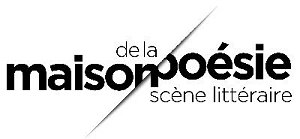
Maison de la Poésie Paris
Samedi 1 février 2014 – 14H00
Films & Poésie
“DE / SUR, films de poètes, films sur la poésie”
Samedi 1 février 2014 – 14H00 Films & Poésie De plus en plus de poètes ont une pratique filmique et tournent des films de poésie, libres dans leur forme, souvent remarquables et peu montrés. Le cinéma documentaire s’aventure quant à lui à la rencontre du champ poétique, des poètes et de leur œuvre. Des films de poètes, des films sur le champ poétique : la frontière tombe, quand les poètes filment les leurs… Une journée pour les découvrir, pour un événement à suivre… Première séquence 14h00 : « Amadou Lamine Sall, la poésie de l’action » de Abdoul Karim Ndiaye (Sénégal, 2012, 52 min) 15h00 : « Dans les jardins de mon père[…]
Première séquence
14h00 : « Amadou Lamine Sall, la poésie de l’action » de Abdoul Karim Ndiaye (Sénégal, 2012, 52 min)
15h00 : « Dans les jardins de mon père », un portrait de Bernard Vargaftig par Valérie Minetto et Cécile Vargaftig (France, 2008, 57 min)
16h15 : « Quatre », portraits de Bernard Heidsieck, Henri Chopin, Jean-Luc Parant et Maurice Lemaître par Frédéric Acquaviva (France, 2007-2009, 60 min)
17h30 : « Poets of protest : Hand made », un portrait du poète palestinien Mazen Maarouf par Roxana Vilk (Grande Bretagne-Liban, 2012, 23 min)
18h00 : « A Dog’s life » de Alexandru Solomon, texte de Mircea Cartarescu (Roumanie, 1998, 23 min)
18h30 : pause / rencontre
Seconde séquence
19h30 : « Terre ingrate mais pas totalement » de Jacques-Henri Michot et Alain Puel (France, 2010, 26 min)
20h00 : « Objet-lumière » de Jean-Marie Gleize et Éric Pellet (France, 2006, 18 min)
20h30 : « La Fille du Far West » de Jérôme Game, Nebahat Avcioglu et Valérie Kempeneers (France, 2013, 43 min)
21h30 : « Il est important de penser » de Katalin Molnár et David Christoffel, hommage à Christophe Tarkos (France, 2009, 63 min)
Agenda Maison de la Poésie de FÉVRIER 2014
DE/SUR, DES FILMS DE ET SUR LES POETES
du samedi 01 février 2014 à 14h00
au samedi 01 février 2014 à 19h30
L’ANIMAL CELESTE
du dimanche 02 février 2014 à 15h30
au dimanche 02 février 2014 à 17h30
ECHAPPEES #3
le lundi 03 février 2014 à 19h00
LA PETITE COMMUNISTE QUI NE SOURIAIT JAMAIS
le lundi 03 février 2014 à 20h00
JACQUES JOUET-DU JOUR
le mardi 04 février 2014 à 19h00
LE MONOLOGUE DE MOLLY BLOOM
le mardi 04 février 2014 à 20h30
GERARD GENETTE-EPILOGUE
le jeudi 06 février 2014 à 19h00
LE GARCON COUSU-MONOLOGUE
le vendredi 07 février 2014 à 20h00
BASTIEN LALLEMANT, AUTEURS ET MUSICIENS INVITES
le dimanche 09 février 2014 à 15h00
ECHAPPEES #4
le lundi 10 février 2014 à 19h00
ALAA EL ASWANY-AUTOMOBILE CLUB D’EGYPTE
le lundi 10 février 2014 à 19h30
UN TROU ENORME DANS LE CIEL
le mardi 11 février 2014 à 19h00
CHEVAL BLANC ET AGNES DEBORD-COLLEGE ROUGE
le mardi 11 février 2014 à 20h00
CHARLES JULIET-APAISEMENT, JOURNAL VII
le jeudi 13 février 2014 à 19h00
EN CE JOUR DE SAINT-VALENTIN . . .
le vendredi 14 février 2014 à 19h00
LES EVAPORES
le dimanche 16 février 2014 à 17h00
VALERE NOVARINA-L’ENVERS DE L’ESPRIT
le mardi 18 février 2014 à 19h30
VALERE NOVARINA-L’INQUIETUDE
le mercredi 19 février 2014 à 20h30
VALERE NOVARINA-LE DISCOURS AUX ANIMAUX
le jeudi 20 février 2014 à 20h30
Maison de la Poésie
Passage Molière
157, rue Saint-Martin – 75003 Paris
M° Rambuteau – RER Les Halles
# website Maison de la Poésie Paris
fleursdumal.nl magazine
More in: Art & Literature News, FDM in Paris, Literary Events, Maison de la Poésie

Ton van Reen: Katapult, de ondergang van Amsterdam (03)
`Hé, waar moet jij zo haastig naartoe?’ riep David.
Crazy hoorde en zag hem niet. Hij leek vastbesloten door te rennen tot hij erbij zou neervallen. Teleurgesteld keek David hem na. Crazy Horse gedroeg zich weer zoals men van hem kon verwachten, onbesuisd en recht op het doel af.
Crazy was zijn grote vriend. David zocht hem vaak op, op zijn zolderkamer in de Goudsbloemstraat, meestal als hij even tot zichzelf wilde komen. De rust van het rommelige kamertje beviel hem, maar het was vooral Crazy zelf die hem trok. Crazy had aandacht voor zijn problemen. Vanaf het moment dat ze elkaar hadden leren kennen, klikte het. Eigenlijk had hij de student ontmoet door zijn zus Mireille, met wie Crazy al jaren scharrelde. Ze waren wel gek op elkaar, die twee, maar ze leidden allebei een geheel eigen leven, zodat niemand wist hoe het er met hun verhouding voor stond. Waarschijnlijk wisten ze dat zelf ook niet.
David voelde een weeë druk in zijn maag, iets wat het midden hield tussen misselijkheid en honger. Om de woede die hij in zich voelde opkomen te onderdrukken, pakte hij zijn katapult, haalde een gladde steen uit zijn zak en legde aan op de bovenste verdieping van hotel Marriott. Met een droge knal brak een van de grootste ruiten. Nog een drietal andere ruiten moest het ontgelden voordat David het kokende gevoel in zijn bloed kwijt was.
Door het Vondelpark ging hij op weg naar huis. Normaal liepen er altijd veel mensen; nu was het er stil. Alleen een oud vrouwtje liep rillend voor hem uit. Er vloog een klein vogeltje boven haar kruin, een winterkoninkje dat in de stad was verdwaald en afging op de piepgeluidjes die uit de keel van het vrouwtje kwamen, alsof er een rat in zat. David kende haar. Ze liep hier vaak rond. In het voorbijgaan wilde hij haar goedendag zeggen. Hij durfde het niet. Hij had nooit iemand iets tegen haar horen zeggen. Altijd liep iedereen haar voorbij, alsof ze er gewoon niet was. Haar ogen stonden vreemd. Ze keek langs iedereen heen.
In het park zag hij de eerste voorbodes van de lente: zwerverstypen met een gitaar in het gras, nog zo jong dat ze zeker van huis waren weggelopen. Om vrij te zijn. Ze aten friet uit kartonnen schaaltjes, zonder zich af te vragen of dat op reis wel de gezondste voeding was. Ook dat het gras nog klam was, leek hun niet te hinderen. Ze waren gelukkig. God wist wat ze nog allemaal aan goeds van de stad meenden te mogen verwachten, gelokt door de fabeltjes die erover werden verteld. Maar de stad was van beton en de mensen die er woonden waren van dezelfde hardheid.
wordt vervolgd
Ton van Reen: Katapult (03)
fleursdumal.nl magazine
More in: - Katapult, de ondergang van Amsterdam, Reen, Ton van
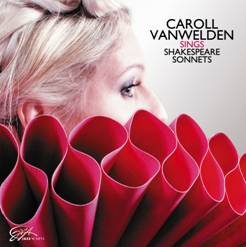
Caroll Vanwelden Sings Shakespeare Sonnets
Caroll Vanwelden is a Belgian Jazz singer/songwriter/pianist who just released her new album “Caroll Vanwelden Sings Shakespeare Sonnets” in which she combines Shakespeare´s sonnets with her own compositions to a ground breaking, fresh and emotional jazzy sound. The amazing intensity of her compositions elevates Shakespeare´s words to a new dimension. Caroll Vanwelden´s voice transmits accuracy and comfort with an astonishing gift to always create the appropriate ambiance.
The artist presents each of the selected sonnets in an exceptional setting: at times forceful, intense, driven, at times, relaxed, mellow, smooth, then again vibrant and vigorous or cheerful and even a little bit shy.
Caroll Vanwelden, a graduate of the famous London Guildhall School of Music and Drama – with illustrious graduates such as Orlando Bloom, Daniel Graig and Dave Holland – is accompanied by a great band with the skill to play music that combines unparalleled transparency with plasticity. With this album she propels the great Shakespeare unexpectedly into the world of big jazz librettists and interprets his lyrics into contemporary music in wonderful arrangements.
NDR: Jazz-album of the week 43//Financial Times Deutschland: 5 stars//Stereo Magazine: CD of the Month & AudioHighlight of the Month//Fono Forum: Musik & Klang 5 stars//MDR: take 5 CD Suggestions//Stereoplay:Klangtipp//JazzinBelgium: Album of the week
“On this album you’ll find amazing art at the same level as Norma Winstone, Diana Krall or Randy Crawford.” CONCERTO (Austria) by Gerhard Strejcek 8.10.2012
“This album has all the potential to be elected album of the year.” FONO FORUM (Deutschland) by Thomas Hintze 12/2012
“….resumed as an amazing European Jazz Album.” CRESCENDO (Deutschland) by Anna Hermann 12.10.2012
Caroll Vanwelden: vocals, piano, arrangements
Thomas Siffling: trumpet, flugelhorn
Mini Schulz: double bass
Markus Faller: drums, perc.
Coming up soon (2014): new album with Compositions on Shakespeare Sonnets II.
Musicians: Caroll Vanwelden played with or still plays with Thomas Siffling, Mini Schulz, Markus Faller, Obi Meinhard Jenne, Rodrigo Villalon, Phill Pesket (Molokko), Victoria Freestone, Jez Franks, Rob Mullarky (Seven), Johan Sabbe, Dirk Van der Linden , Henk de Laat (Enrique Tarde), Jean Van Lindt (The Swing Dealers), Vincent Mardens (The Swing Dealers), Tars Lootens, Piet Meerschaut, Chris Mentens, Swa Mercelis, Johan Joris, Lieven Cambré, Stijn Deldaele, Mike Roelofs, Ron van Stratum, Frank Peeters, Sam Vloemans, Luiz Marquez, Dominique Vantomme, Geert Roelofs, Peter Hermesdorf, Marc Huynen, Rogier Van Wegberg, Arie Storm, Jan Mües, Mario Vermandel, Luc Van den Bossche, Stijn Wauters, Janos Bruneel, Hans Van Oost, Andrew Cleyndert, Jan De Haas, Tom Mahieu,… and many more……
2014 Caroll Vanwelden concerts
31/01 BIX Jazzclub Stuttgart with Thomas Siffling, Mini Schulz and Rodrigo Villalon
09/02 Backnang Backnanger Bürgerhaus with Thomas Siffling, Mini Schulz and Rodrigo Villalon
03/04 Sankt Ingbert Jazz Festival 20h Stadthalle St. Ingbert with Thomas Siffling, Mini Schulz and Rodrigo Villalon
11/04 Hemingway Lounge Karlsruhe with Thomas Siffling, Mini Schulz and Florian Alexandru Zorn
26/04 Bremen Shakspeare Company with Thomas Siffling, Mini Schulz and Florian Alexandru Zorn
15/07 &16/07 Shakespeare Festival im Globe Neuss with Thomas Siffling, Mini Schulz and Rodrigo Villalon
06/07 Mittelrhein Musik Festival together with Andrea Sawatzki in Burg Stahleck with “Don’t Explain” project
24/06 Luxemburg CC
09/08 Rheingau Festival 19 Uhr with our Shakespeare Project with Thomas Siffling, Mini Schulz and Rodrigo Villalon
18/09 Gelsenkirchen in Lüttinghof Die Burg im Wasser with our Shakespeare Project with Thomas Siffling, Mini Schulz and Rodrigo Villalon
For more info & reviews Website: www.carollvanwelden.be
fleursdumal.nl magazine
More in: # Music Archive, Art & Literature News, Shakespeare, William

The Sorrows of Young Werther (05)
by J.W. von Goethe
15 May 1771
The common people of the place know me already, and love me, particularly the children. When at first I associated with them, and inquired in a friendly tone about their various trifles, some fancied that I wished to ridicule them, and turned from me in exceeding ill-humour. I did not allow that circumstance to grieve me: I only felt most keenly what I have often before observed. Persons who can claim a certain rank keep themselves coldly aloof from the common people, as though they feared to lose their importance by the contact; whilst wanton idlers, and such as are prone to bad joking, affect to descend to their level, only to make the poor people feel their impertinence all the more keenly.
I know very well that we are not all equal, nor can be so; but it is my opinion that he who avoids the common people, in order not to lose their respect, is as much to blame as a coward who hides himself from his enemy because he fears defeat. The other day I went to the fountain, and found a young servant-girl, who had set her pitcher on the lowest step, and looked around to see if one of her companions was approaching to place it on her head. I ran down, and looked at her. “Shall I help you, pretty lass?” said I. She blushed deeply. “Oh, sir!” she exclaimed. “No ceremony!” I replied. Sheadjusted her head-gear, and I helped her. She thanked me, and ascended the steps.
The Sorrows of Young Werther (Die Leiden des jungen Werther) by J.W. von Goethe. Translated by R.D. Boylan.
To be continued
fleursdumal.nl magazine
More in: -Die Leiden des jungen Werther, Archive G-H, Goethe, Johann Wolfgang von
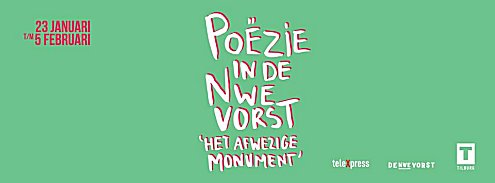
Het Afwezige Monument:
Poëzie in De NWE Vorst Tilburg
In het kader van de landelijke poëzieweek zet De NWE Vorst van 23 januari t/m 5 februari de deuren open voor tal van dichterlijke activiteiten.
Op donderdag 30 januari is in de Rode Salon van De NWE Vorst een prikkelende avond met poëzie, muziek en interviews. Hiermee wordt de door RUIMTE-X en Bureau Stadsdichter ingezette traditie voortgezet.
Tijdens het eerste deel van de avond komt de ‘oudere generatie’ aan het woord bij monde van Victor Vroomkoning (voormalig stadsdichter van Nijmegen), Jef van Kempen (schrijver/dichter), dichter en kinderboekenschrijver Albert Megens en onze huidige stadsdichter Jasper Mikkers. Zij worden door Pieter Bon (directeur Academy for Creative Industries Fontys / zanger en dichter) aan de tand gevoeld over tal van kwesties waaronder de verschillen en overeenkomsten tussen hun eigen generatie en de jonge garde, tussen schrijftafeldichters en podiumbeesten. Zij zullen allen voordragen uit eigen werk.
Alvorens die jonge garde aan het woord komt is er een reprise van een speciaal voor Kunstronde Tilburg geschreven prelude van stadsdichter Jasper Mikkers, door componist/musicus Aart Strootman op muziek gezet en uitgevoerd door Tom Sanderman (tenorsaxofoon) en Jasper Mikkers. Dit muziekstuk vormt de opmaat tot een muzikaal portret van de stad, dat aan het eind van Mikkers’ periode als stadsdichter moet zijn afgerond.
Nadien gaat Pieter Bon de dialoog aan met de jonge generatie onder wie Esther Porcelijn, Robert Proost, Daan Taks, Martin Beversluis en Ootje Ananas.
Tevens vindt de première van een filmpje van cineast /performer / beeldend kunstenaar Leonard Bedaux over dichter / schrijver / beeldend kunstenaar / tekenaar/performer Gummbah.
En – in tijden waarin groente en fruit in het kielzog van Ottolenghi furore maken – ter afsluiting een swingend optreden van De Zingende Groenteman.
Entree € 6,00 | € VVK € 5,00.
Locatie: De NWE Vorst, Willem II straat 49, 5038 BD Tilburg
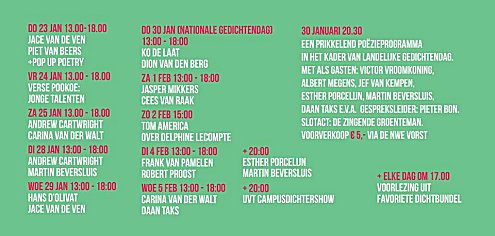
Facebook: poëzieindenwevorst – het afwezige monument
fleursdumal.nl magazine
More in: Art & Literature News, Literary Events

William Blake
(1757-1827)
A POISON TREE
Was angry with my friend:
I told my wrath, my wrath did end.
I was angry with my foe:
I told it not, my wrath did grow.
And I watered it in fears,
Night and morning with my tears;
And I sunnèd it with smiles,
And with soft deceitful wiles.
And it grew both day and night,
Till it bore an apple bright;
And my foe beheld it shine,
And he knew that it was mine,
And into my garden stole,
When the night had veiled the pole:
In the morning glad I see
My foe outstretched beneath the tree.
William Blake poetry
fleursdumal.nl magazine
More in: Archive A-B, Blake, William, DRUGS & DISEASE & MEDICINE & LITERATURE
Thank you for reading Fleurs du Mal - magazine for art & literature